PM Anthony Albanese’s unlimited power – now he must choose
At the start of his second term Albanese is arguably in a better position than Robert Menzies, the nation’s longest-serving prime minister, and Bob Hawke, Labor’s longest-serving prime minister.

Like it or not, Anthony Albanese is Australia’s future. He’s all we’ve got. Whatever happens with the Coalition, there’s not even a viable opposition. With Labor holding 94 seats in the House of Representatives – after winning more seats than any party since Federation and the only first-term government since World War II to increase its majority – the Prime Minister is in an unprecedented position to transform Australian politics, priorities and policies.
At the start of his second term Albanese is arguably in a better position than Robert Menzies, the nation’s longest-serving prime minister, and Bob Hawke, Labor’s longest-serving prime minister. Labor can now realistically consider a third term.
After meeting the mammoth challenge of re-election – following a first term that some colleagues viewed as too cautious and a wasted opportunity after a decade in opposition – Albanese now faces a more important challenge: how to manage the victory.

To avoid the mistakes of previous leaders who overreached when given the power and opportunity to implement an agenda, Albanese must avoid adopting a “winner takes all” approach, over-estimating Labor’s mandate and refusing to make sensible changes or compromises when circumstances change.
He can achieve this by reining in overenthusiastic colleagues, pursuing his stated approach of appealing to aspirational Australians, keeping faith with his declaration of governing for all, guiding the government to the centrist zone of the successful Hawke-Keating years and asserting his leadership authority more broadly.
Given the extent of the election victory – and the obvious destruction of the Liberal and National parties – Albanese’s leadership through this term and beyond (he’s only 62) is assured. All the shadow jockeying before the election and predictions of an expected minority government are over.
The idea that Albanese would have to “choose to go” and retire to his new house on the NSW central coast is now as remote as Coalition harmony. And those such as Jim Chalmers, who is a boyish 47 and was mooted as a likely Labor leader, will have to wait.
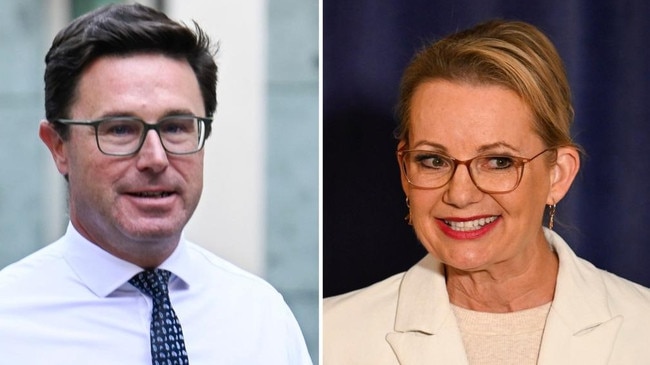
How well Albanese responds to his overwhelming dominance in parliament and as a government at a time of global economic uncertainty, strategic fears, changing political landscapes and developing international power blocs will determine not only the length of his service but also its importance.
The nation’s prosperity, economic growth, social health and place in the world are all directly related to Albanese’s second-term leadership. Next week, even as the 2025 election counting continues for the Senate, the Albanese government will return to business and start preparations for a parliamentary resumption in mid-July. There will be the first working cabinet meeting, ministers settling into their new portfolios and clear directions to avoid hubris.
As Albanese returned this week from his first overseas trip of his new term and the Liberal and National leadership brawled publicly, undermining the Coalition and rendering themselves almost irrelevant, there have already been a few indicators that show Labor ministers can see the ironic dangers that come with their colossal victory.
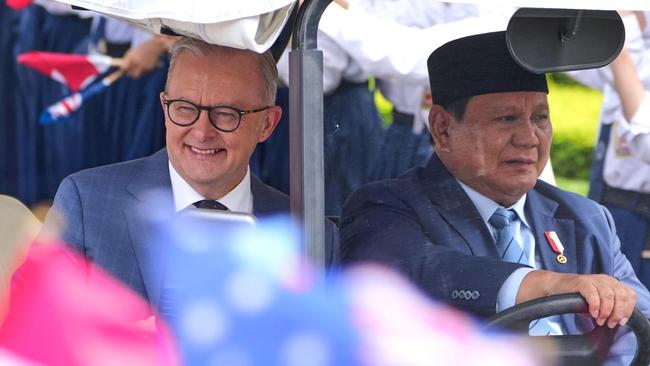
After desperately avoiding international travel as much as possible in the last year of his first term and the damaging impression of being “Airbus Albo”, travelling the world and living high off the hog, the Prime Minister confidently started term two with a visit to Indonesia.
Given the importance of the relationship with Indonesia and the role of Russian bids to have long-range aircraft, including bombers, use Indonesian airfields only 1300km from Darwin, it was the correct decision.
When reports of the Russia request first appeared during the election campaign, Albanese clumsily used the request in a domestic political attack against Peter Dutton, who mistakenly attributed a statement to the Indonesian President and said “it” never happened.
Cabinet minister and attack dog Murray Watt also crashed around the china shop, declaring there had never been a Russian request and it was like investigating fake moon landings or the Loch Ness monster. That it was real and was known by the Albanese government was an embarrassing episode.
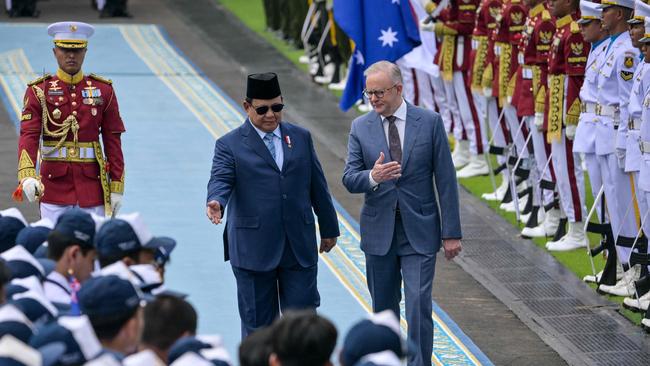
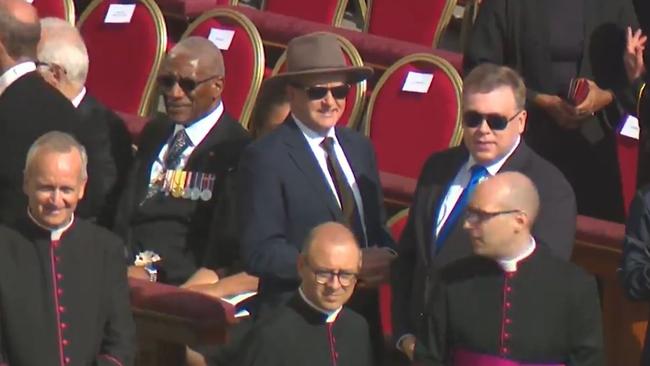
In Jakarta, President Prabowo Subianto welcomed the Prime Minister warmly with an unscheduled private visit to the Australian leader’s hotel. Under questioning from all the media, Albanese showed he could deal with the security-sensitive Russian request and said Indonesia was not allowing the Russian base and he wasn’t going to comment on matters between other countries.
If he had done that during the election campaign, it wouldn’t have been an issue.
Albanese then went to the Vatican installation of Pope Leo XIV, had a private audience with Leo, with whom he was clearly impressed, and met a range of world leaders formally and informally.
Post-Trump tariff negotiations, Albanese appealed to European Commission president Ursula von der Leyen requesting she address the impediments to Australian agricultural trade to Europe, including the naming wars over feta and prosecco.
Deputy Prime Minister Richard Marles, meanwhile, talked about closer defence ties with the EU.
Albanese also met Ukrainian President Volodymyr Zelensky, reassuring him of Australia’s ongoing support. He didn’t meet US Vice-President JD Vance, pointedly telling journalists he had not sought a meeting – avoiding any suggestion of a snub.
A meeting with Donald Trump will come soon, but Albanese, despite Britain and Canada doing deals with the US on tariffs, was keen to avoid any suggestion of anxiety or panic.
On the way back from Rome, Albanese visited our other key regional ally and friend, Singapore, and held further discussions on the Australia-Singapore Comprehensive Strategic Partnership with newly re-elected Prime Minister Lawrence Wong.
“Australia’s prosperity and economic future are linked with Southeast Asia,” Albanese said on his return, looking calm and confident against a background of political vindication and affirmation.
Although the Trump presidency has brought chaos to international affairs and financial markets, it contributed to the unexpected strength of the Labor vote.
But it is in domestic politics and policy that will determine the substance of the Albanese government. While the bizarre antics and self-destructive behaviour of the “Noalition” was the icing on the electoral victory cake for Albanese, he was unusually circumspect and preferred to leave Sussan Ley and David Littleproud to foul their own nest.
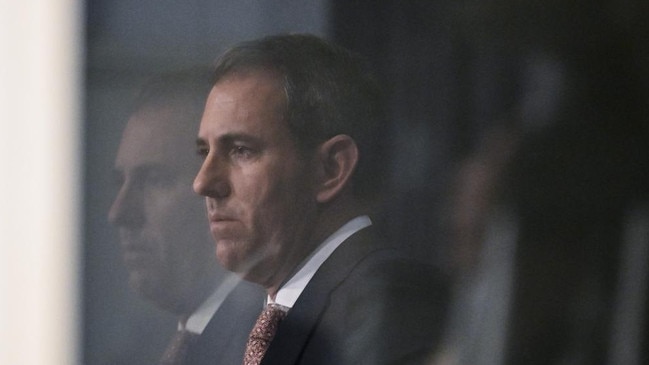
When asked about the Coalition split, Albanese responded: “Our job is to remain focused. And I make this point: political parties will not be successful if they’re focused on themselves. And that is what my task is, to focus on the needs of the Australian people.
“I lead a united party that is focused on the needs of the Australian people.”
The Treasurer made the same point: “Every member of our team is focused on the job at hand. We approach this term with humility and gratitude.
“The magnitude of our election victory was a surprise to us as well, but we worked very hard to convince Australians that we could provide stability and responsibility in uncertain economic times around the world.”
Chalmers cited Labor’s mandate for the years ahead, but there is a danger for him in pushing ahead with unpopular and unwise policy, such as the planned tax on unrealised capital gains in superannuation savings, and merely claiming there is a mandate for everything.
This is one area where sensible compromise would be a show of faith in not wanting to adopt a winner-take -all approach.
“Our focus is on continuing to manage the economy in a responsible way, to focus on the commitments that we made in the campaign, how we roll them out, and to make sure that we continue to provide that stable economic leadership at a time when there’s a lot a lot of global economic uncertainty,” Chalmers said.
But the 2022 stability and business as usual plan will not work for Albanese or the economy from 2025 – and it was possible this week to see changes in tone.
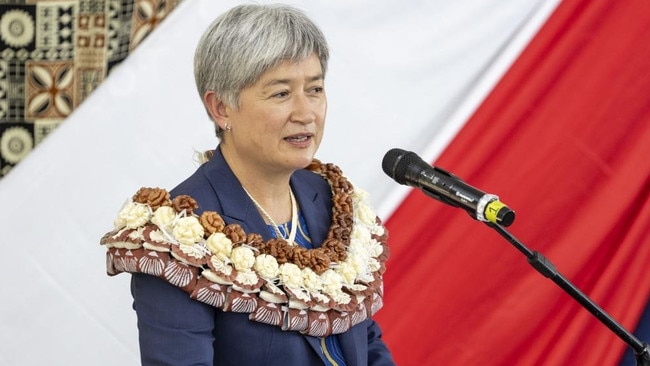
Foreign Minister Penny Wong’s address to her Pacific Islands counterparts declaring it was China’s action on climate change that mattered for rising sea levels in the blue continent was a clear message about China’s influence in the region.
This week Environment Minister Watt signalled a decision on Woodside’s gas production on the North West Shelf in a more favourable manner than his predecessor in the portfolio, the sideways shifted Tanya Plibersek.
Watt ruled out five years as a timeframe to phase out gas as he appealed to the new Labor base in Western Australia: “The transition towards a renewable-based economy is going to take time … and we will need gas supplies to back up that renewable energy for some time to come.”
These are but straws in the wind but Albanese has demonstrated himself to be an astute – and lucky – politician who will be wary of overreach now that he is into the serious period of government.






